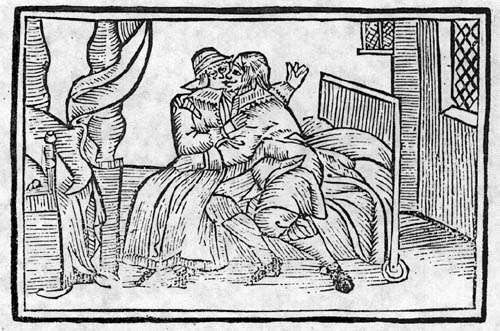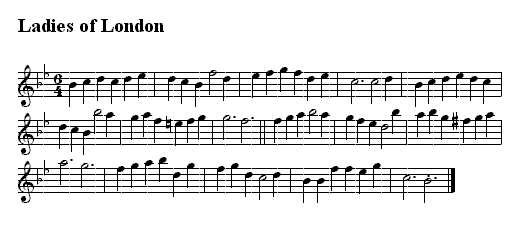To the Tune of, The Ladies of London. This may be Printed, R. P.


 Ll
Jolly Blades that Inhabit the Town, Ll
Jolly Blades that Inhabit the Town, And with the fair Sex are contriving, From the Gay Fop, to the hone¥ b°ed Clown, be advis'd to reƒolve again¥ Wiving ; Let not a p°oƒpect of Pleaƒure delude, where ƒo many Plagues are attending, Fo° 'tis the Nature of Wives to Obtrude, and Miƒeries heap without ending.
Fir¥, have a care of the Lady
p°eciƒe,
Let no City-Girl your freedom
beguile,
Let not the Country wench that
is coy,
But if your Vigo° a Wife doth
require
Now how to avoid ƒo heavy a
Curƒe,
|
L O N D O N.
Printed for J. Back, at the Black
Boy near
Draw-Bridge on London-Bridge.

The tune "Ladies of London" starts
automatically if your browser plays midi files (see note).
|
|
To display these correctly, see the instructions on the main page, Restoration Print Culture. |
|
The ballad "Advice to Young Gentlemen"
was printed in London between 1685 and 1688. |
|
CogWeb Citation and Copyright Information Revised 10 September 1999 |
|
|